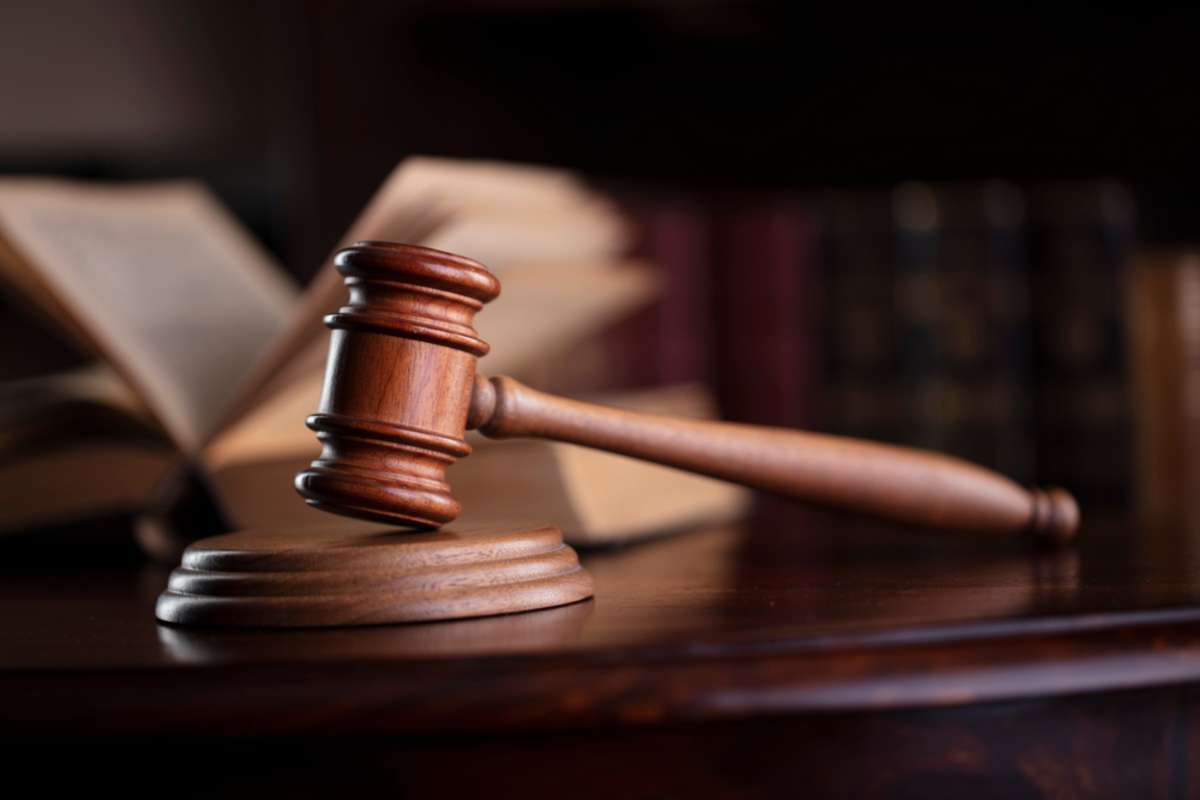Listen to the article
10 Tips To Creating a Standard Lease Agreement: What You Need To Know
Managing rental properties can be a rewarding venture, but it requires careful planning and attention to detail. One aspect of successful property management is having a well-crafted lease agreement.
In this blog, we'll provide you with valuable insights and tips on creating an airtight lease agreement that protects both you and your tenants. Whether you're a seasoned landlord or just starting in the real estate game, these tips from our team at Own It Detroit will guide you through the process of drafting a comprehensive and effective lease agreement.
1. A Free Template Isn't Good Enough
While numerous free basic rental agreement templates can be easily found online, note that a lease agreement template may not always provide the level of specificity required for your unique rental property. Each property has its distinct features, such as size, location, amenities, and rules, which should be accurately reflected in the lease agreement.
To ensure that your lease agreement fully addresses the specific needs and considerations of your property, it is highly recommended to invest the time and, if necessary, financial resources in creating a personalized lease agreement.
By doing so, you can tailor the terms and conditions to precisely reflect the requirements of your property. This includes aspects like rent payment terms, security deposit details, maintenance responsibilities, and any specific rules or restrictions that apply to your property.
A personalized lease agreement offers several advantages. It provides clarity and transparency for both you as the landlord and your tenants. It minimizes the potential for misunderstandings or disputes, as all parties are aware of their rights and obligations. Additionally, a comprehensive lease agreement can also help protect your interests and mitigate risks.
Creating a personalized lease agreement may require some effort, but it is a worthwhile investment in the long run. It ensures that you have a legally binding document that covers all the necessary aspects of the lease.
If needed, you can seek professional assistance from a lawyer or a real estate expert to ensure that your lease agreement complies with local laws and regulations.
 2. Customize the Lease as Needed
2. Customize the Lease as Needed
Every property is truly unique, with its own set of circumstances that surround it. It is crucial to customize your lease agreement to accurately reflect the distinctive features and rules of your property.
By doing so, you can ensure that your lease effectively addresses the specific requirements of your rental business, providing a solid foundation for a successful and harmonious landlord-tenant relationship.
Taking the time to tailor your lease agreement demonstrates your commitment to professionalism and fairness, setting the stage for a mutually beneficial arrangement that benefits both parties involved.
3. Add All Necessary Clauses
When creating a property agreement, it is important to include certain clauses to protect the landlord and the tenant.
Here are some necessary clauses to consider:
-
Standard Clauses: These are commonly included in property agreements and cover essential terms such as rent payment, lease duration, security deposit, and termination notice period.
-
Parking Arrangements: Include detailed rules and regulations regarding parking, such as designated parking spots, guest parking allowances, and any additional fees or restrictions.
-
Pet Policies: Clearly outline any pet-related rules, including restrictions on breeds or sizes, additional fees or deposits for pet owners, and any required pet-related responsibilities.
-
Maintenance Responsibilities: Specify who is responsible for routine maintenance tasks versus major repairs or upgrades. This helps to avoid confusion and ensures that both parties understand their obligations.
By incorporating these necessary clauses into your property agreement, you can establish clear expectations and minimize potential misunderstandings or conflicts in the future.
4. Keep Your Verbiage Simple and Clear
When drafting your lease agreement, it is of utmost importance to use straightforward and easily comprehensible language. Avoiding the use of complex legal jargon as much as possible is essential.
Additionally, it is advisable to define any necessary technical terms to ensure clarity.
To enhance readability, it is recommended to keep the sentences short. Furthermore, organizing the content into distinct sections can greatly contribute to a better understanding and comprehension of the lease terms and conditions.
By adopting this approach, you can ensure that both you and your tenants fully grasp and comprehend the rights and obligations outlined in the simple lease agreement. This clarity is crucial in preventing potential disputes and fostering a harmonious relationship between landlord and tenant.
5. Update the Lease Agreement Template Often
By regularly reviewing and updating your lease agreement, you can ensure that it remains compliant with the latest laws, ordinances, and regulations set forth by local, state, and federal authorities.
This proactive and diligent approach not only demonstrates your unwavering commitment to legal compliance but also helps to mitigate the risk of potential legal complications that may arise in the future.
By keeping your lease agreement template up to date, you are actively safeguarding your interests as a property owner, ensuring that your rights and obligations are accurately reflected and protected.
Moreover, staying abreast of the ever-changing property regulations allows you to navigate the intricate legal landscape with confidence and peace of mind. It grants you the ability to make informed decisions, fully aware of the legal implications and consequences that may arise from any changes or updates in property laws.
In addition, maintaining an up-to-date lease agreement can also foster positive relationships with tenants. It shows your commitment to providing a secure and legally sound environment, enhancing trust and transparency between the parties involved.
6. Know the Laws in Michigan
In Michigan, like in all states, there are specific laws and regulations about rental properties and rental agreements. Here are some key points to be aware of:
-
Michigan Truth in Renting Act: This law requires landlords to provide tenants with a written lease agreement that includes specific information about the rental property, such as rent amount, payment terms, and the landlord's responsibilities.
-
Security Deposit Act: This law sets limitations on the amount landlords can charge for security deposits and outlines the procedures for returning the deposit at the end of the tenancy.
-
Landlord's Duty of Maintenance: Landlords in Michigan are required to maintain the rental property in a habitable condition and address any necessary repairs promptly.
-
Fair Housing Act: This federal law prohibits discrimination in housing based on protected characteristics such as race, color, religion, sex, national origin, familial status, or disability.
It is important to consult with legal professionals or refer to official sources to ensure compliance with all applicable laws and regulations in Michigan.
7. Include Consequences for Lease Violations
Clearly define the consequences for any violations of the terms of the basic rental agreement. By explicitly outlining the repercussions for various infractions such as late rent payments, unauthorized alterations, or any other breaches, you can establish a strong deterrent and ensure a clear course of action in case of disputes.
This approach promotes transparency and helps maintain a harmonious landlord-tenant relationship, fostering a sense of mutual respect and accountability.
By having well-defined consequences that are communicated effectively, both parties can understand the expectations and responsibilities outlined in the lease agreement.
8. Consult a Lawyer and Property Manager
Before finalizing your lease agreement, it is highly recommended to seek professional advice from a qualified real estate lawyer. They have the expertise to ensure that your lease is legally sound, protecting your rights and interests as a landlord.
Their guidance can help you navigate through complex clauses and legal jargon, providing you with a clear understanding of your obligations and responsibilities.
Moreover, consulting with a knowledgeable property manager can provide valuable insights into what clauses are practical and effective for your specific market. Their experience in managing properties can help you make informed decisions that align with your unique needs and goals. They can offer suggestions on rental rates, lease terms, and property maintenance, ensuring that your lease agreement is tailored to maximize your benefits.
By taking these proactive steps, you can gain peace of mind knowing that your lease agreement is well-crafted and in compliance with the law. This can help prevent potential legal or financial issues down the road.
9. Require Signatures from All Parties
To ensure a smooth rental process, it is crucial that all parties involved, including landlords and tenants, carefully review and sign the lease agreement.
By doing so, a legally binding contract is established, providing a solid foundation for the tenancy and minimizing the likelihood of potential disputes arising from ambiguous lease terms or misunderstandings.
This approach fosters transparency, clarity, and mutual understanding between the landlord and tenant, ultimately promoting a positive and harmonious rental experience for both parties involved.
 10. Review the Lease with Tenants at the Signing
10. Review the Lease with Tenants at the Signing
It is important to allocate sufficient time to thoroughly review the lease agreement with your tenants during the signing process. This review ensures that both parties have a clear understanding of their respective rights and responsibilities, thereby fostering a transparent and cooperative landlord-tenant relationship that is built on trust and mutual respect.
By taking the time to go through the lease agreement in detail, potential areas of confusion or ambiguity can be addressed upfront, minimizing the likelihood of disputes or misunderstandings in the future.
Furthermore, this thorough review allows for open communication between the landlord and tenant, providing an opportunity for any necessary clarifications or modifications to be made to the agreement, ultimately leading to a more harmonious and mutually beneficial tenancy experience.
Create a Standard Lease Agreement With Own It Detroit Property Management
Creating a standard lease agreement is a fundamental step in successful property management. By following these ten tips, you can craft a comprehensive and effective lease that protects your interests and fosters positive landlord-tenant relationships.
At Own It Detroit, we pride ourselves on offering comprehensive property management services that put landlords' interests and peace of mind at the forefront. With vast experience in the Detroit real estate market, we provide personalized assistance in preparing legally sound lease agreements, ensuring they are tailored to each landlord's unique requirements and comply with all Michigan state laws.
If you're ready to take your property management to the next level, download our comprehensive guide, The Guide to Investing in the Detroit Market With Own It Detroit Property Management, and discover how Own It Detroit can be your trusted partner in all aspects of property management.








